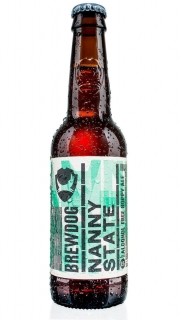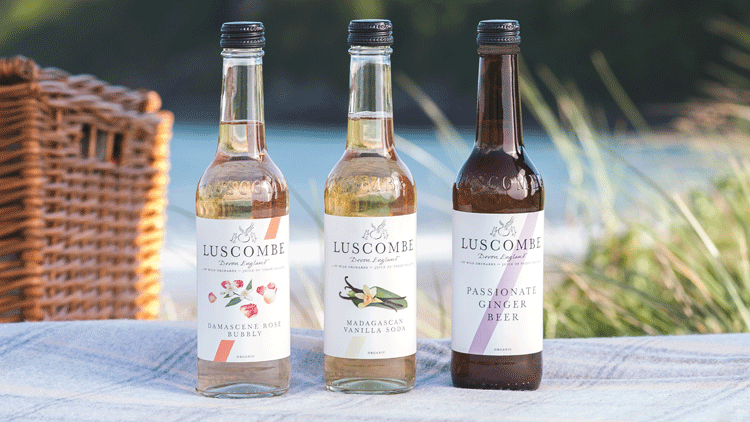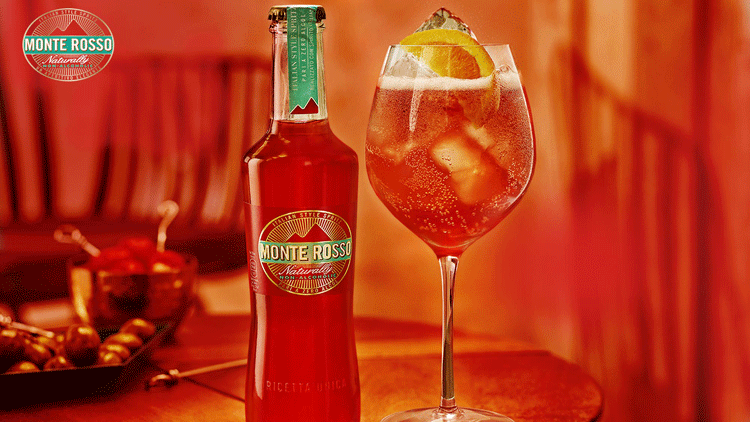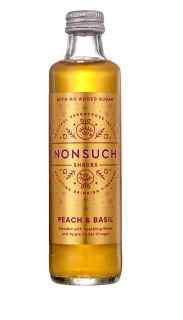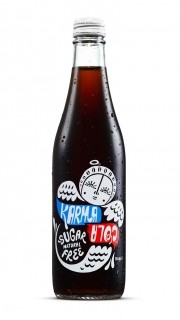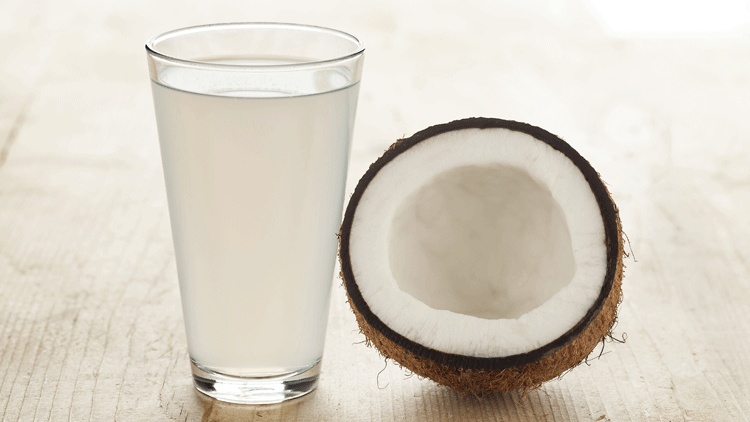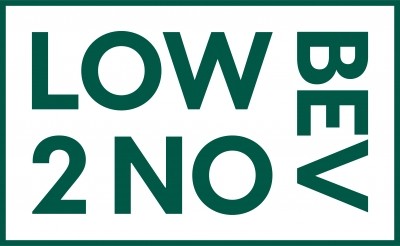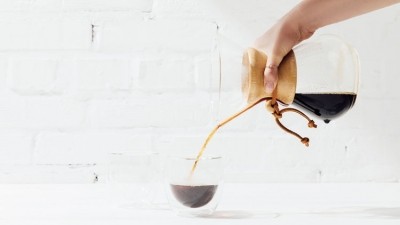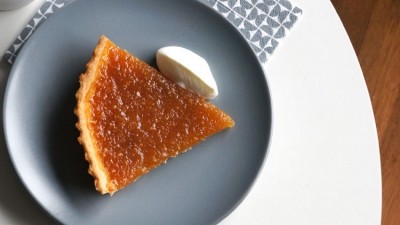Eight soft drink alternatives to alcohol
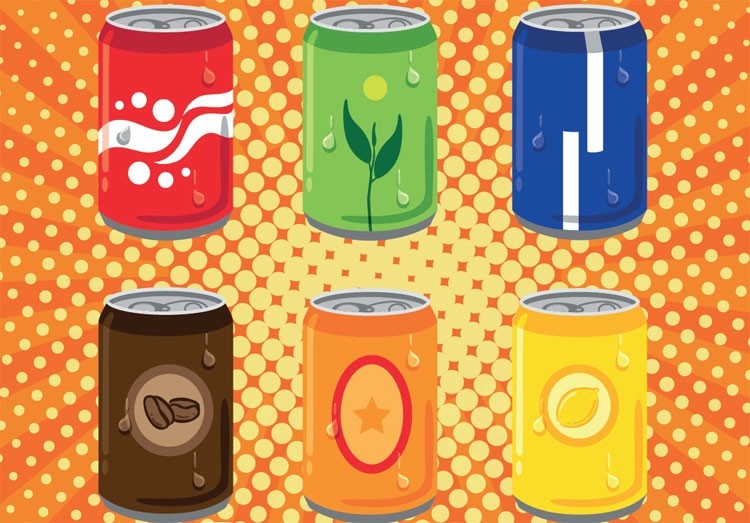
Here are eight drinks styles to get you started.
Kombucha
A few years back if you’d listed kombucha on your drinks menu you’d have been met with puzzled customers wondering what exotic fruit may be on offer. Today, the fermented and naturally lightly sparkling drink made from black or green tea and a sprinkling of bacteria has attained cult status thanks to its probiotic and antioxidant properties. Beloved by Millennials for being the very antithesis of the super sweet soft drinks drunk by the previous generation, the mighty ‘buch’ is to soft drinks what Aeropress is to coffee, and thus its popularity has soared, particularly around east London. There are many brands out there to choose from, but one of the slickest we’ve seen is Jarr, which comes in stylish brown 473ml bottles in original, ginger and passion fruit flavours.
Booze-free beer
While soft drinks companies have long targeted the non-drinker or designated driver on a night out, the beer industry has been somewhat slower on the uptake. But, with stats showing that one in four Millennials don’t drink any alcohol at all, more recently, brewers have started to take note and produce alcohol-free versions of their beers that are actually pretty good.
BrewDog was among the first to take up the baton from the earlier 0% abv beers, such as Kaliber and Beck’s Blue, with its provocatively named Nanny State, a 0.5% abv beer made in the same spirit as its other craft beers with Centennial, Amarillo, Columbus, Cascade and Simcoe hops.
Others have since followed its approach with equally creative and enticing names, including Pistonhead’s Flat Tyre and Innis & Gunn’s Innis & None. Most non-alcoholic beers are produced by being brewed at full strength before the alcohol is removed, but not all. Big Drop Brewing Co has created a chocolate milk stout that is brewed to 0.5% abv, a welcome alternative for non-drinkers looking to move away from lager-style drinks.
Wheat beers are also well suited to having no alcohol thanks to their quite complex flavour. Erdinger even bills its 0.5% abv beer as a healthy isotonic drink thanks to it containing vitamins B12 and folic acid as well as polyphenols.
Caffeinated cold drinks
With the exception of Red Bull and its ilk, caffeinated drinks are typically served hot at the end of a meal. Let’s face it, nobody drinks iced coffee in a restaurant and only Subway thinks ice tea is something people want to drink. And yet cold caffeinated drinks could become a thing in restaurants with new styles of less sweet drinks that take their cues from the third-wave coffee movement. Cold brew has been around for a while in retail and coffee shops, but it is anticipated that the drink filter through to restaurants as the trend for more people seeking out alternative soft drinks continues. Cold brew tea is even a thing and is being served in some top-end restaurants in a similar fashion to wine.
Less usual libations
While some adults are still young at heart when it comes to their choice of soft drinks, others consider themselves to have more mature palates and seek out less obvious concoctions. According to Jen Draper, head of marketing at drinks brand Franklin & Sons, 41% of adult soft drink consumers are looking for unusual flavours. This led the company to launch a range of drinks that each contain a more adult-friendly tertiary ingredient, including cracked black pepper, cinnamon, lemongrass, star anise and juniper berries. “Drinks that include a secondary flavour have become the go-to for drinkers as they adhere to discerning tastes, but offer a simple way to create elevated flavours,” says Draper.
Drinks producer Luscombe has long championed interesting flavour combinations, which it believes makes its drinks far better suited to being matched with food than more traditional softs. Drinks in its range include a blueberry crush, a lime crush, a Damascene rose bubbly and a Madagascan vanilla soda.
Aperitif alternatives
With an increasing number of younger people turning their backs on booze completely, a new breed of soft drink has risen that attempts to deliver all the good things associated with an alcoholic tipple but without the hard stuff. Soft drink brand Zeo was among the first to try to mimic the sensation of alcohol with its complex ingredient formula back in 2012, but the drink was almost ahead of its time and it failed to capture the restaurant sector’s imagination. Six years on and there have been a number of impressive new entrants that have made it significantly easier for restaurants and bars to offer non-alcoholic aperitifs, and even grown up non-alcoholic cocktails (as opposed to mocktails).
Wisehead Production’s Monte Rosso is a lightly sparkling bitter aperitif that blends cranberries and rowanberries with botanicals and is a genuine booze-free alternative to an Aperol spritz when served straight over ice. The biggest success story in the sector, however, has to be Seedlip, claimed to be the world’s first non-alcoholic spirit. The brand can now be found on the drinks list of many of the UK’s top restaurants, not least The Fat Duck, The Hand & Flowers, The Clove Club and The Ledbury, with cocktails made using it commanding a similar price to their boozy counterparts.
Shrubs
Like kombucha, shrubs are growing in popularity thanks to a tangy taste profile that is a good alternative to alcohol when drunk with food. The drinks, which are made with fruit and vinegar, came about during America’s colonial era and have been more recently revived by forward-thinking restaurants and bars looking to offer something different on their drinks list.
Often home-made, pre-packaged shrubs are now a thing, meaning that the drink is likely to follow the trajectory of kombucha in the ensuing years. Nonsuch is one brand, which has created three flavours of shrubs – peach and basil; sour cherry and garden mint; and blackcurrant and juniper – made with fruit juice, herbs and cyder vinegar, but others do exist. At the start of last year, cocktail ingredients brand Funkin created what it claimed was the UK’s first commercially available shrub. Its Funkin Pro beetroot shrub syrup blends the vegetable with rosemary and spirit vinegar and is ‘an ideal non-alcoholic aperitif ’ (see above) to get the juices flowing.
Pop re-imagined
Many of the latest adult soft-drink launches have focused on using interesting ingredients and flavour combinations to appeal to the older age group’s more sophisticated palates.
But there’s also been a growth in brands having a crack at traditional pop recipes. Fever-Tree is one of them. Best known for its tonics, the company also produces a range of classic softs, including ginger beer, ginger ale and a Madagascan cola. The latter, for example, is made from Nigerian kola nuts, Indonesian cassia and Madagascan vanilla and was created as a premium version of the well-known soft drink.
Fever-Tree isn’t alone in giving cola drinkers more options; Karma Cola also has a version made with kola nuts, sugar, lemon, vanilla, nutmeg and coriander. The ethical drinks company also makes a lemonade alternative, called Lemony, and a ginger ale called Gingerella and is soon to launch a sparkling orange. Drinks brand Soda Folk also has orange and apple variants in its range of bottled soft drinks, as well as less mainstream flavours, including grape, cherry and juniper.
Coconut water
The clear liquid found inside green coconuts, coconut water, has been heralded as one of the next great health drinks thanks to it containing less sugar than soft drinks and being a source of potassium (it is also believed to be a hangover cure, which is why you’ll often see it being drunk on the tube during the morning rush hour). These factors have helped coconut water become the UK’s fastest growing soft drink, with sales forecast to quadruple in the next five years to £500m by some market analysts. Often found in cartons, the drink isn’t packaged in the most restaurant friendly of formats but its health credentials (however dubious) mean that it makes a good option for restaurants serving healthy breakfasts and weekend brunches.
If you’re looking for something coconut-based that is a bit more on-message, then drinks brand Big Boss Palm might be the solution. Dubbed the first sodas made from coconut water, the drinks come in 250ml cans in three flavours – toasted coconut with a touch of citrus; coconut and vanilla, described as a grown up take on the cream soda; and rose and vanilla. As well a being served over ice, the company also suggests serving as a float with a scoop of ice cream, garnishing it with mint or using it as a mixer with spirits.
